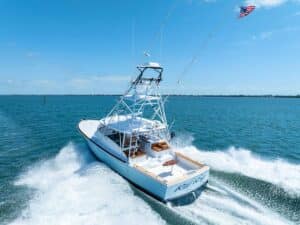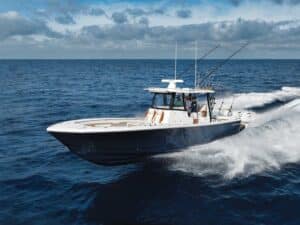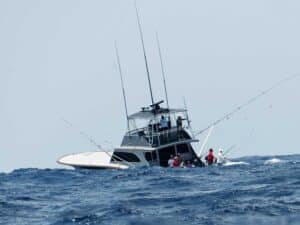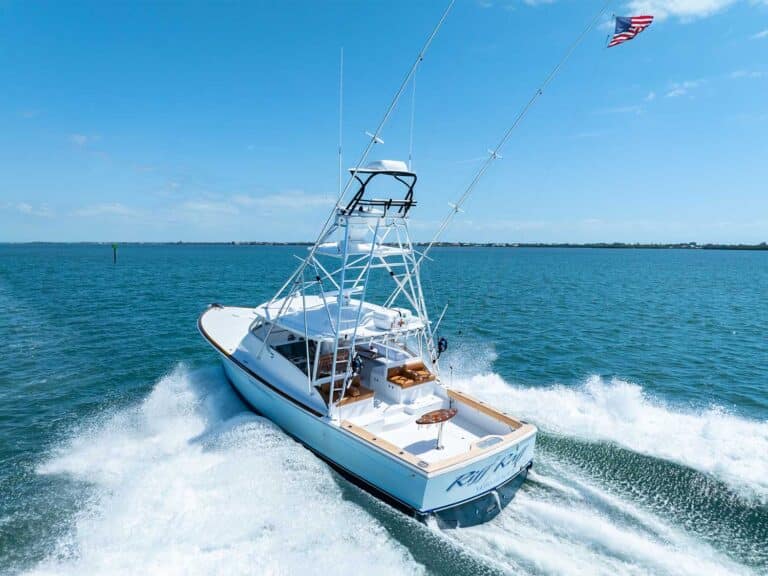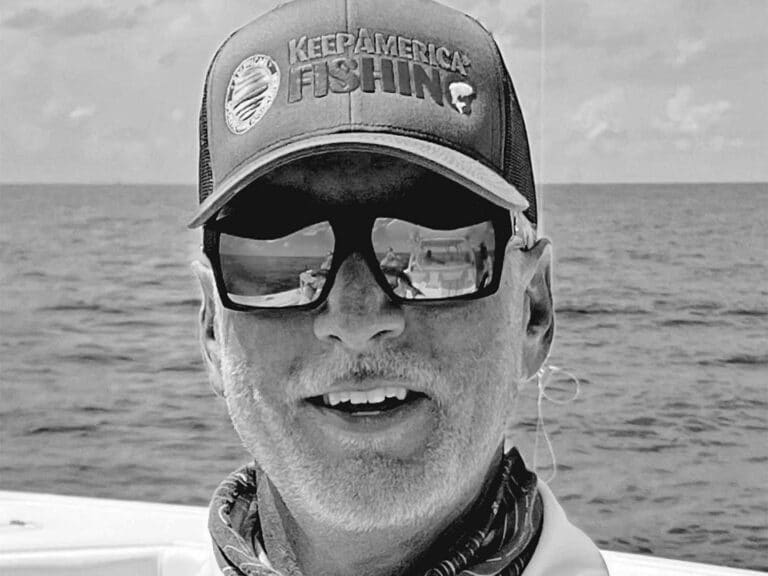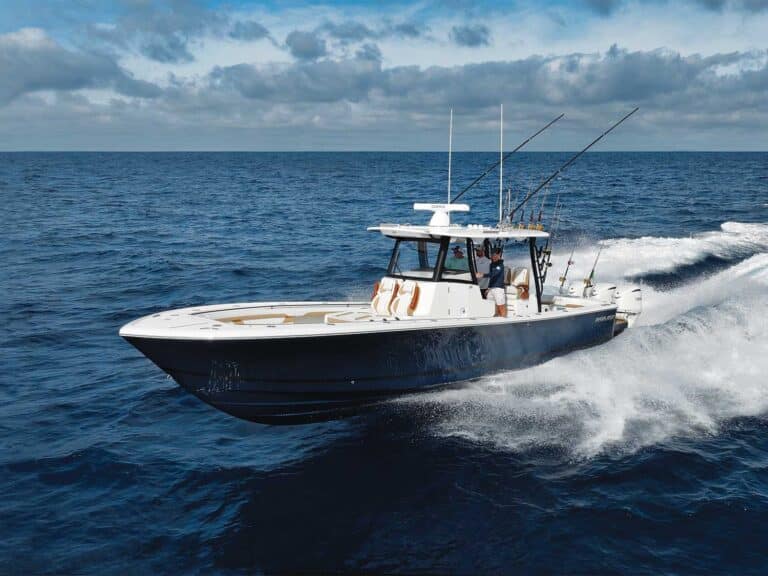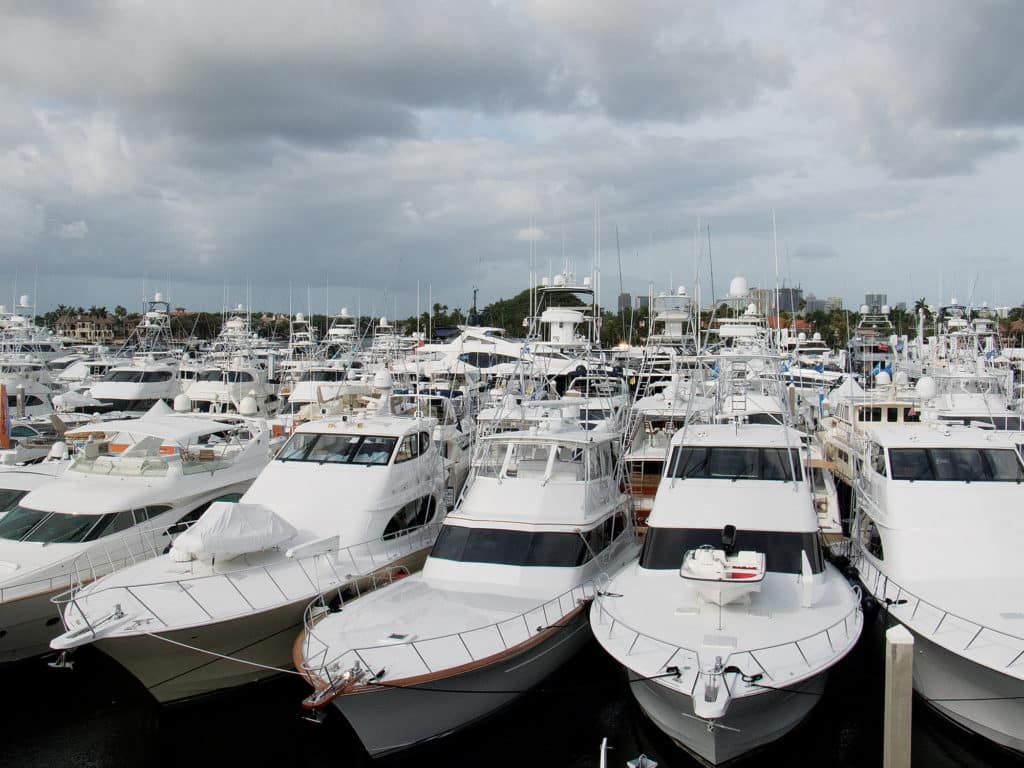
Every boat deal is different, but there is a general process buyers should be familiar with before purchasing a sport-fishing boat. As I mentioned in a previous article, brokers are quite helpful throughout the course of a purchase, but that doesn’t mean the individual purchasing the boat shouldn’t be aware of the basic stages.
Personal Inspection
Of course, the first step to any purchase is for buyers or their brokers to look at the boat. Now, this doesn’t mean buyers get to sea-trial or survey the boat. Rather, they have an opportunity to personally inspect the boat, perform a walkthrough and assess its layout so they can evaluate the boat’s overall condition and determine if it suits their needs.

The Offer
After locating a suitable boat, the next logical step is to make an offer. A formal offer is usually presented to the seller, or the seller’s broker, by presenting a purchase and sale agreement signed by the potential buyer. The buyer’s broker typically also signs the offer, indicating he has received a deposit from the buyer to be applied toward the purchase of the boat.
So why is a deposit necessary? For one, it shows that the buyer is serious. But legally speaking, the deposit is a form of consideration, which is one of the elements necessary to form a binding contract. Consideration is something of value (e.g., money) and is exchanged for the performance, or promise of performance, by the selling party. In this situation, the buyer is remitting the deposit in exchange for the seller taking the boat off the market.
A seller normally has one to three days to accept an offer. Oftentimes, a seller will make a counteroffer with a higher price. Other times, the seller will accept the purchase price but wish to adjust other portions of the contract. For example, the seller might wish to add an exclusion list, adjust the closing date or include other additional terms to the agreement. As the buyer, it is paramount not to get flustered at this early stage in the process. If you like the boat, the most important thing to do is to compromise with the seller to the extent comfortable and get the contract signed by all parties.
Surveys and Sea Trials
Essentially, all purchase and sale agreements are conditioned upon, to the buyer’s sole discretion, the satisfactory performance of surveys and sea trials. It is the buyer’s exclusive responsibility to select the surveyors, both a hull surveyor and a certified mechanic (engine surveyor), to handle the various portions of the inspection. This is one of the areas in which a broker’s value comes to light. A seasoned and honest broker will have a few different surveyors and mechanics whom he or she can contact, depending on the type and size of the boat and engines. Buyers should do everything possible to choose the surveyors themselves, especially if not represented by a broker who is familiar with various names in the industry. If relying on the listing broker for assistance, buyers should ensure a list of several names is provided — each of which they can vet and contact prior to making a decision on who to use. Buyers should be wary of a listing broker providing only one surveyor from which to choose.
Acceptance or Rejection
Upon completion of the surveys and sea trials, buyers must decide if they wish to accept or reject the boat. A properly written contract has an accept/reject date, by which time buyers must inform the seller of their intentions moving forward in the buying process. Of note, buyers are typically deemed to have rejected a boat if they fail to give timely written notice of acceptance. In any case when a boat is rejected, the deposit is returned, and the seller is free to put the boat back on the market.

Surveys Never Reveal a Perfect Boat
Experienced boaters and brokers know there has never been a perfect survey, so first-time buyers should not be spooked if there are a few minor items in the report. That being said, many buyers propose a conditional acceptance to the seller so that buyers will accept the boat only if the seller agrees to meet specific conditions. This is often a tense time period in a boat deal due to the negotiations that occur as a result of the surveys. A conditional acceptance can come in many forms, but the most common conditions are a reduction in the purchase price or the correction of one or several deficiencies found in the surveyors’ reports. If the parties are eager to close, then they can arrange an escrow holdback agreement. This arrangement holds back a certain amount of funds in escrow subsequent to closing until the desired items are fixed. In any event, the surveyor, or another independent expert, should always be used to sign off on any repairs when performed as part of a boat deal.
Time to Close
There is no turning back once a boat has been accepted by the buyer. The parties thereafter must work toward closing as quickly as possible. Should the buyer get cold feet and refuse or is unable to close after acceptance, then they will likely lose their deposit and potentially even find themselves in a lawsuit for a larger amount. With all that being said, purchasing a boat is not an overly complicated process, but it is important to understand the basic steps before pulling the trigger.
Raleigh P. Watson is a contributing author, and a Partner at Miller Watson Maritime Attorneys.
